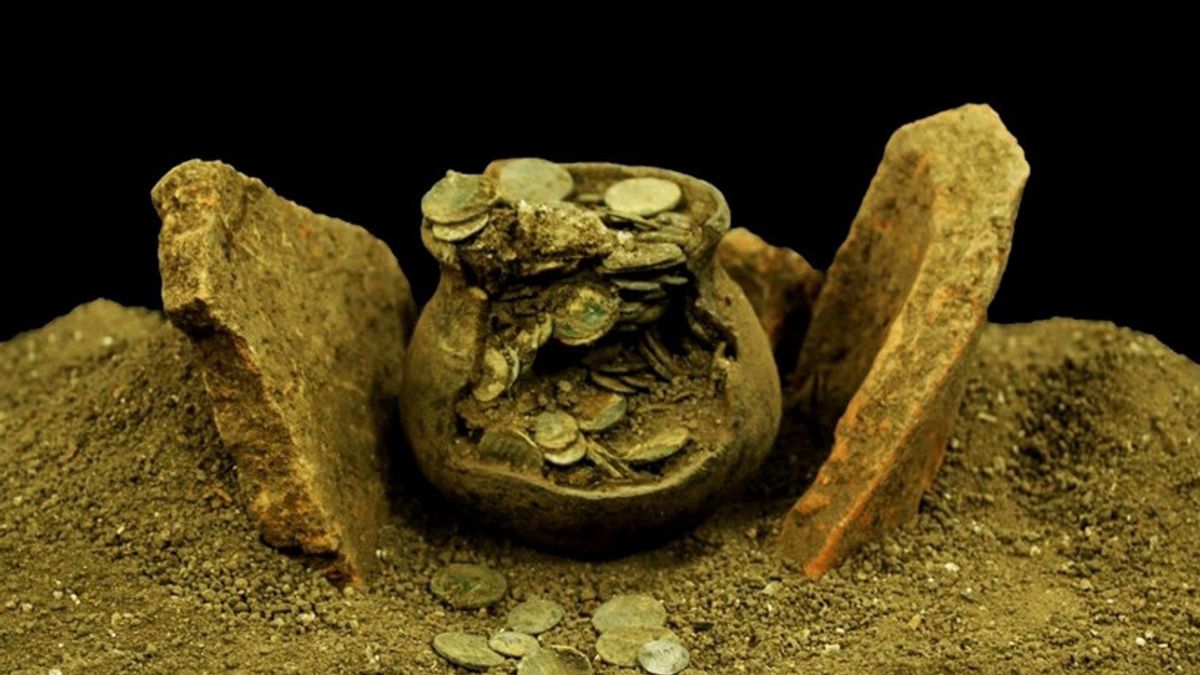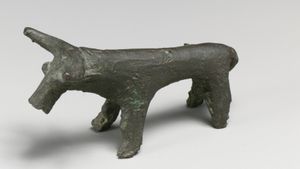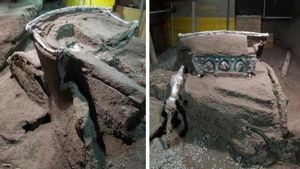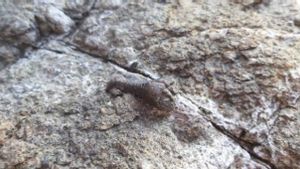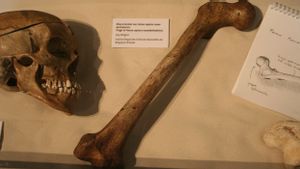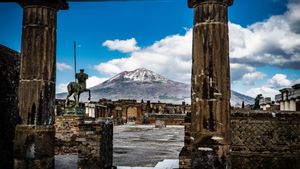JAKARTA - Very special details of 651 Roman coins found in the ancient city of Aizanoi located in Kutahya Province, Turkey have been released by the researchers behind the discovery.
The silver coins were found in the jug during an archaeological excavation led by researchers from the University of Pamukkale, according to a press release from the university.
The coins were discovered in 2019 and date back to the period of Emperor Augustus, who ruled from 44 BC to 14 AD. He was an Ancient Roman Emperor who successfully built an empire that stretched from England to Egypt.
Many of the coins feature the face of Augustus, while others bear similarities to Marcus Junius Brutus, one of the leaders in Caesar's assassination in 44 BC, and some show Caesar himself.
"The coins are a very special and unique collection, which may have been brought to Aizanoi by a high-ranking soldier," said the head archaeologist and professor of Pamukkale University, Turkey Elif Ozer told CNN.
"The majority of coins appear to be minted in southern Italy," said a press release published earlier this month.
In September 2018, at least 300 Roman coins were found in a soapstone jar excavated in the basement of the Cressoni Theater in Como, north of Milan, Italy.
SEE ALSO:
And in October, ancient Roman coins described as a 'celebration' of Caesar's assassination set a new record for coins being sold at auction. Purchased by an anonymous bidder for £ 2.7 million, or about 3.5 million US dollars, the aureus coin features a portrait of Brutus.
The English, Chinese, Japanese, Arabic, and French versions are automatically generated by the AI. So there may still be inaccuracies in translating, please always see Indonesian as our main language. (system supported by DigitalSiber.id)
